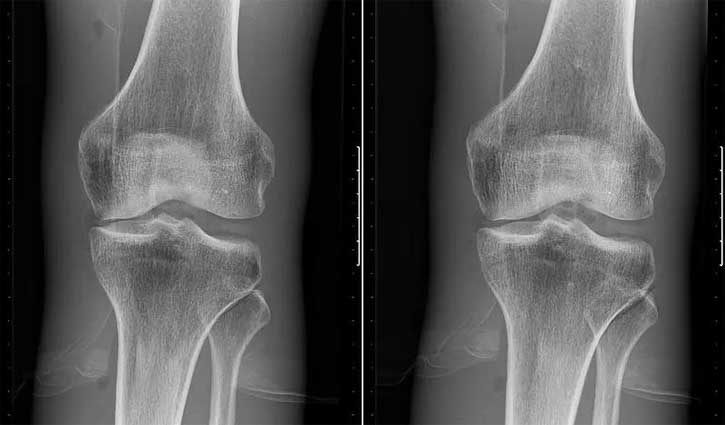Common treatment for knee osteoarthritis `ineffective`: study
Desk Report || risingbd.com

An injection commonly used to treat osteoarthritis in knees is hardly better than a placebo for relieving pain but increases the risk of harmful side effects, according to research Thursday.
Injections of hyaluronic acid have been used for the condition since the 1970s, but the new study adds to growing doubts about the treatment.
Knee osteoarthritis is a leading cause of disability among older people, the study said, citing 2020 research which found that more than 560 million people suffer from the condition worldwide.
It causes deterioration of the cartilage in knee joints, leading to pain and often difficulty walking.
Hyaluronic acid, a gel-like substance, has long been injected into the joint aiming to lubricate movement and decrease pain. The treatment is also known as viscosupplementation.
A meta-analysis published in the BMJ journal looked at 169 previous trials that compared the injections to a placebo -- or no treatment.
The researchers then whittled that down to 24 large trials involving nearly 9,000 patients, the largest review of available data so far.
They found "strong conclusive evidence" that "viscosupplementation is associated with a clinically irrelevant reduction in pain intensity", the study said.
They also said the treatment is "associated with a higher incidence of serious adverse events", adding that it is "not only ineffective compared with a placebo but might also be seriously harmful".
The study did not exclude the possibility that certain kinds of patients could benefit from the treatment.
But it said that "the findings do not support broad use of viscosupplementation for the treatment of knee osteoarthritis".
More than 12,000 patients were likely unnecessarily subjected to the treatment between 2009 and 2021, given the research already available on the subject at that point, the study said.
Hyaluronic acid injections have come under scrutiny in several countries in recent years.
France's social security system stopped offering reimbursements for the treatment a few years ago, despite the opposition of specialists who prescribe the injections, companies that produce hyaluronic acid, and some patients' groups.
England's National Institute for Health and Care Excellence has guidelines recommending against viscosupplementation.
However, in the United States, the treatment's use grew considerably from 2012 to 2018, the study said, with one in every seven patients with the condition receiving an injection.
It added that a quarter of the money US Medicare spent on viscosupplementation in 2018 in fact went towards treating infections in joints following an injection, one of the most common side effects.
Agencies
Dhaka/Nasim





































